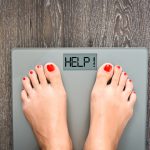URGENT weight loss NEWS: Reduce your risk of COVID complications, improve digestion and avoid premature death
 (NaturalHealth365) Excessive weight gain among children and adults is a growing concern worldwide, especially in light of a reported correlation between severe COVID-19 cases and obesity. Now, the results of a brand new study from the European Society of Endocrinology suggest that probiotics could be a valuable part of the puzzle when figuring out how to effectively lose weight.
(NaturalHealth365) Excessive weight gain among children and adults is a growing concern worldwide, especially in light of a reported correlation between severe COVID-19 cases and obesity. Now, the results of a brand new study from the European Society of Endocrinology suggest that probiotics could be a valuable part of the puzzle when figuring out how to effectively lose weight.
What are probiotics? According to Cleveland Clinic, probiotics are live microorganisms, including bacteria and yeast, that help your body (and especially your digestive tract) stay healthy – and it turns out they could also help people lose weight.
NEW study: How probiotic supplementation can yield BETTER weight loss results
In early September 2020, a team of Italian researchers released the results of their investigation into the effects of probiotic supplementation on treating childhood obesity. The researchers specifically wanted to find out whether supplementing a calorie-restricted Mediterranean-style diet with a class of probiotics called Bifidobacteria would yield better improvements in health compared to diet alone.
Bifidobacteria are known for preventing infection from other “bad” bacteria, helping to break down carbohydrates in the gut, supporting healthy digestion, and influencing food intake and energy expenditure.
After separating 100 obese and insulin-resistant children into an experimental group or control group for 8 weeks, the researchers found that both groups saw improvements in body mass index, blood pressure, insulin resistance, and waist circumference (as well as fewer harmful E. coli bacteria in the gut). But the children who followed the diet AND took probiotics had greater weight loss, insulin sensitivity, and reductions in E. coli compared to the children who followed the diet but were given a placebo.
The beneficial effects of these probiotics lasted for weeks after the children stopped taking them, as well. More long-term studies are needed to clarify probiotic supplementation safety and effectiveness, but the results certainly offer some important insights for parents.
Of course, one can easily imagine what the results would be for adults, as well. Hopefully, this kind of research will expand to include how taking probiotics can help adults to lose weight.
Probiotics can help, but don’t skimp on the basics … these 4 things can help you lose weight and keep it off
Depending on your or your loved one’s health goals, taking high-quality probiotic supplements can be an excellent way to enhance their healthy lifestyle. Emphasis on enhance – not replace.
In other words, if you choose to take advantage of the health-promoting effects of probiotics, just don’t forget to skip out on the other things you can be doing every day that will help you lose weight and improve your well-being overall.
A few simple reminders, that should not be overlooked include:
- Stay physically active, especially through regular aerobic and strength training exercises.
- Commit to getting an adequate amount of sleep consistently. People who don’t get the recommended 7 to 9 hours of sleep may be more likely to overeat and struggle to lose weight, according to the U.S. Department of Health and Human Services.
- Make a balanced (organic) diet and sound food choices the rule, not the exception. The body needs the right amount of calories, micronutrients (vitamins, minerals, and antioxidants) and macronutrients (fat, protein, and carbohydrates) to support ideal weight and physical activity. Look for colorful fruits and vegetables, lean protein, and complex carbohydrates while minimizing or eliminating processed foods and alcohol.
- Monitor your weight. You don’t have to step on the scale every day. But checking your weight periodically can give you the feedback you need. After all, the numbers don’t lie.
As for probiotic foods, try adding these items to your next shopping list:
- Fermented foods like, kimchi and sauerkraut
- Kombucha
- Miso soup
- Water, coconut and dairy-based kefir
- Natto
- Kvass
- Tempeh
Lastly, foods like onion, banana, garlic, and leek naturally feed Bifidobacteria already in your gut, so stock up on those healthy foods, too.
Sources for this article:
ScienceDaily.com
CNNphillippines.com
NIH.gov
Clevelandclinic.org



